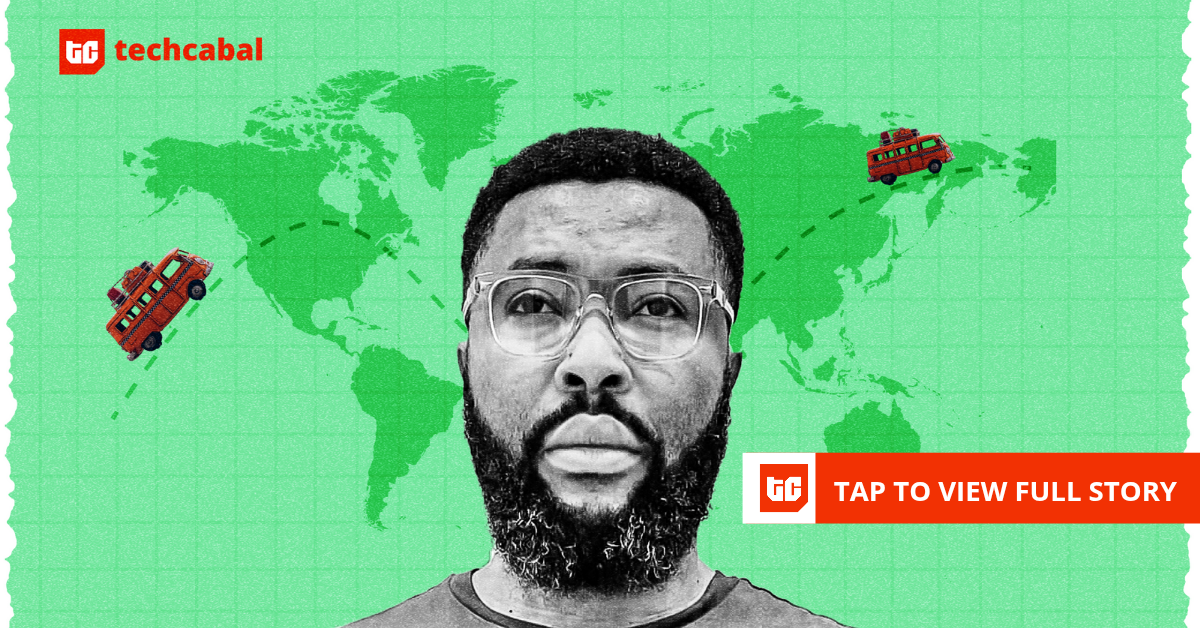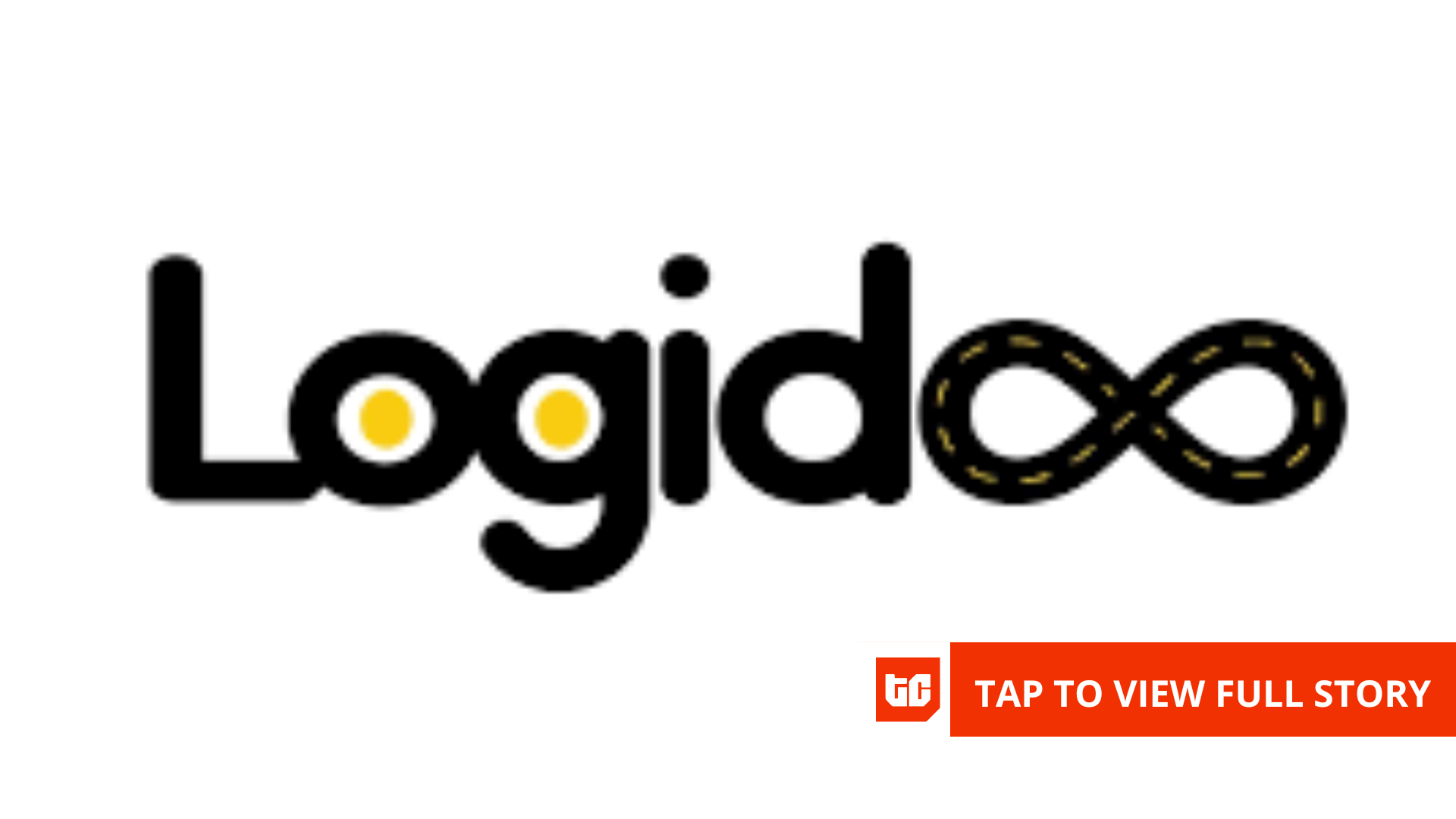Tosin Ayodele is a UK-based engineering lead who grew up in northern Nigeria, surrounded by family and neighbours who were farmers. Now based in the UK, he’s building an agrotech solution to help smallholder farmers in remote areas farm smarter using real-time weather and pest data without smartphones or internet.
As an engineer, Ayodele has worked across companies building software, AI, and data solutions for agriculture, health, and financial services. In the UK, he holds a membership in the British Computer Society (BCS), as well as the US-based Association for Computer Machinery (ACM).
Before Ayodele moved to the UK, he had spent five years working in Lagos, Nigeria. He had no desire to relocate abroad, until an opportunity for Bradford came knocking in 2022.
Ayodele spoke with about his life as an immigrant and building for Africa. This interview has been lightly edited for flow and clarity.
How did you travel to the UK?
I came to the UK on a study visa in 2022 after gaining admission to the University of Bradford. I studied Big Data Science and Technology from the Faculty of Engineering Informatics [at the University of Bradford].
Before that, I worked remotely in Nigeria and built skills through self-learning and hands-on experience. But I knew I wanted global exposure to open more doors.
How tough was the visa process?
It wasn’t too tough for me, but generally, it is demanding. Especially from Nigeria. There’s financial documentation, biometric appointments, visa fees, and Immigration Health Surcharge (IHS), which most non-EEA immigrants pay as part of their UK visa.
All of it can be overwhelming. Plus, there’s emotional pressure. Rejection is common in Nigeria, and even though I had travelled abroad before for conferences, I knew many who struggled with visa rejections.
Relocating here had its own challenges too. It’s been a bittersweet experience, but we’re still pushing.
Did you travel to the UK on a scholarship?
No, it wasn’t a full scholarship. But I did get an entrance scholarship after submitting my papers. It was a kind of half scholarship given by the school based on academic grades.
What’s the process for getting that entrance scholarship?
Technically, once you come from the Sub-Saharan region, you’re eligible for a particular percentage discount. Countries like Nigeria, Ghana, and The Gambia are under the Commonwealth and often get prioritised by British schools. There’s also the Chevening scholarship, but that’s different.
Every school is different. Some offer £3,000–£5,000 depending on the course and school. And if you have exceptional results, you might get a Vice Chancellor’s scholarship. Though that’s more common with PhD applicants.
How much did it cost you to travel to the UK at the time? What has changed now?
I travelled in 2022, but I got my visa around November or December 2021. At that time, the exchange rate wasn’t too bad. We still had access to the Form A system, where the Central Bank of Nigeria (CBN) subsidised forex for students going abroad. You’d also get a quarterly upkeep allowance from the CBN.
For instance, paying £2,000 then cost about ₦1.1 million. But now, £1,000 costs over ₦2 million. It’s like everything tripled. The Form A system is gone. Now, you have to source forex on your own and pay out-of-pocket. It’s a big challenge.
What’s it like traveling from Nigeria to the UK, versus travelling from the UK to other countries?
It’s like day and night.
Travelling from Nigeria to the UK was tough. A lot of paperwork, visa fees, exchange rate issues. But the cost of moving to the UK now is easily three or four times more than what I paid back in 2022.
There’s also emotional stress. You have to constantly prove your legitimacy, even after you’ve qualified and received admission.
But now that I’m based in the UK, travelling to other countries is much easier. I have access to streamlined visa processes, short wait times, and even visa waivers depending on the destination.
Getting a visa appointment for the US from the UK is very seamless. It’s not just about your passport. It’s about where you’re applying from and how you’re perceived.
What’s one recent trip that stood out for you?
In 2024, I attended a conference in Seattle, US. It was an ACM symposium. It was incredible because Seattle is where tech giants like Microsoft and Amazon are headquartered.
I got to meet professionals, entrepreneurs, and investors. All under one roof. The atmosphere, the networking, it changed a lot for me. I really can’t wait to return this year.
Let’s talk about how you work. Do you work remotely, hybrid, or on-site?
Currently, my primary role is hybrid. I work three days from home, two days in the office, which is in London. But sometimes I don’t even have to go every week. I prefer the hybrid model. It gives me flexibility and allows me to maintain productivity.
What does it take to settle down in the UK? What would your advice be to someone planning to move now?
Settling in the UK takes more than just getting a visa. You need planning, adaptability, and, most importantly, community. You have to navigate housing, banking, healthcare registration, and sometimes culture shock. The paperwork doesn’t stop after arrival.
Once you’re through the first few months, things start to stabilise. Remote work opportunities are growing, especially in tech and digital fields. UK companies also outsource a lot, which creates chances for workers even outside the UK.
What does housing expenses look like in the UK?
Housing depends on location. For example, I schooled in Bradford, a small city about 30 minutes from where I now live. Houses there are very affordable, like comparing Ibadan to Lagos. It’s not rural, but it’s budget-friendly.
In my case, I currently live close to a city centre; it’s more expensive. But it’s cheaper if you live outside any city centre. If anyone’s moving to the UK, I’d suggest they plan themselves on a city to live in.
If you’re in tech, you can live anywhere and work remotely, but being around a community is vital.
The people you connect with when you arrive shape how quickly you settle. Many people come to the UK and settle in areas without a support system and end up struggling. You need a plan, especially regarding cost of living.
A job paying £35,000 in London sounds good on paper, but you’d be struggling. The council tax alone can be up to £150–£160 monthly. And many Nigerians are surprised to learn that aside from rent and utilities, you pay council tax too. If you’re new, don’t aim for flashy cities right away. Try places like Bradford or Bedford to stabilise first.
Tell me more about the agrotech tool you’re building.
I’m building an agrotech platform targeted at Nigeria—especifically northern Nigeria; I grew up in Zaria. I was surrounded by farmers, and my mum was one, too. I’ve seen the challenges they face with unpredictable weather, pest outbreaks, lack of access to real data, and no smartphones or internet in many cases.
While working in the UK, I realised we could use internet of things (IoT) to help farmers work smarter. We developed a low-cost chip that doesn’t need internet or smartphones.
It works with USSD, and we’ve tested it in a remote area in the UK that has no internet, just to simulate Nigerian conditions. This technology sends updates on weather and pest outbreaks, helping farmers know when and how to plant, improving their productivity and income.
How does it work?
We get real-time data using application programming interfaces (APIs) like Google Earth Engine, thanks to my ex-NASA professor. This allows us to gather weather updates, which are then sent as SMS in local languages such as Hausa directly to the farmers.
This language part is crucial because many farmers in the North do not speak fluent English. I even speak Hausa better than my own native language, so it made sense to localise the product for usability.
How do you ensure this solution actually fits the Nigerian context?
I lived there. I understand the pain points firsthand. For instance, one farmer I knew didn’t realise pests had ruined part of his crop until it was too late. Our solution alerts them early, even without the internet. It helps them connect directly to buyers too, removing middlemen.
How does this solve post control?
Pest control is integrated. Once the system detects a pest outbreak risk through weather data or a farmer’s input, it sends out early alerts to others in the area. For example, if someone’s planting maize and there’s a known pest pattern in that region, they’ll get a message before the problem escalates.
There’s data that shows 20–40% of Nigerian crops are affected by pests annually. We’re trying to prevent those losses by warning farmers ahead of time.
How much does it cost to build something like this?
It’s tough to estimate. You might budget £3,000 to £10,000 and add a £200 buffer for miscellaneous, but in reality, that buffer can balloon.
Living in the UK and building this kind of project has taught me that “miscellaneous” often becomes the main expense. Unexpected costs always come up.
Have you launched this platform yet?
We have everything in place. But full rollout requires collaboration with local governments in northern Nigeria. I plan to travel [back to Nigeria] later this year to finalise those partnerships. It’s not “launched” yet, but it’s ready.
What’s one thing you wish more diasporan engineers knew about building for Africa?
That it’s not charity, and it’s not about being a saviour. It’s about context, humility, and connection.
You can’t just build in London and expect it to work in Kaduna. What works in Seattle may fail in Jos, not because the idea is bad, but because it wasn’t built with local realities in mind: power outages, cost of SMS, language barriers.
And collaboration is key. There are smart people abroad doing amazing work. Collaborate and look for ways to build something useful or improve what already works and adapt it locally.
Mark your calendars! Moonshot by is back in Lagos on October 15–16! Join Africa’s top founders, creatives & tech leaders for 2 days of keynotes, mixers & future-forward ideas. Early bird tickets now 20% off—don’t snooze! moonshot..com










